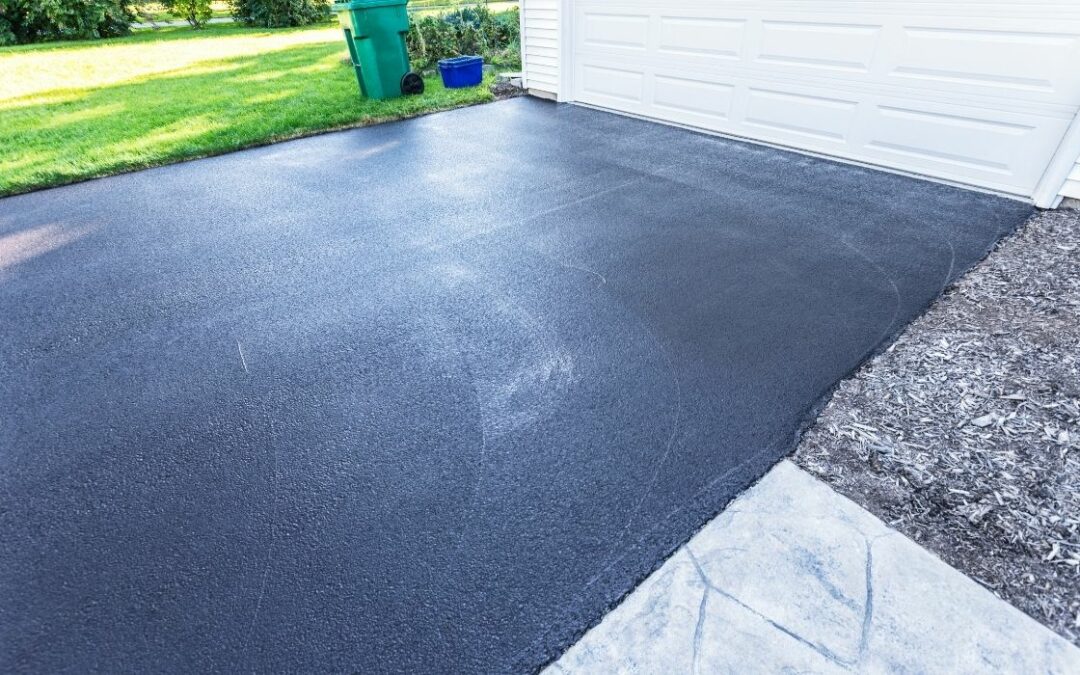Discover the Power of Industrial Car Park Paving and Asphalt Sealing
Discover the Power of Industrial Car Park Paving and Asphalt Sealing
Blog Article
Warm Mix Asphalt: A Sustainable Solution for Pavement
Warm Mix Asphalt (HMA) has actually become a leading lasting option for sidewalk solutions, supplying a myriad of cutting-edge modern technologies and ecological benefits. Its capability to recycle materials and decrease energy consumption presents an engaging instance for its fostering in roadway construction projects. The lasting efficiency and toughness of HMA make it a favored option for infrastructure development. As the demand for eco-friendly construction techniques grows, checking out the nuances of HMA's sustainability can offer valuable understandings into the future of pavement services.
Environmental Advantages of Hot Mix Asphalt

Furthermore, Hot Mix Asphalt assists to reduce city warm island results. Its dark color takes in sunshine, minimizing the quantity of warm mirrored back into the ambience contrasted to lighter-colored sidewalks. This can lower ambient temperature levels in urban locations, decreasing the need for air conditioning and inevitably reducing energy consumption.
Additionally, Hot Mix Asphalt contributes to improved stormwater administration. Its permeable nature permits water to infiltrate the pavement and reenergize groundwater materials, lowering drainage and the risk of flooding. These environmental advantages make Warm Mix Asphalt a sustainable option for leading highways and roads.
Energy Performance in HMA Manufacturing
Is power performance an important consider the manufacturing of Warm Mix Asphalt (HMA)? Absolutely. Power plays a considerable function in the production of HMA, affecting both cost and environmental sustainability. One key aspect of energy efficiency in HMA production is using cozy mix asphalt (WMA) innovations (commercial parking lot paving). WMA permits the blending and placement of asphalt at lower temperatures contrasted to typical warm mix asphalt, leading to lowered power intake throughout production. This process not only reduces fuel use yet likewise reduces greenhouse gas exhausts, making it a more environmentally pleasant alternative.
In addition, improvements in plant modern technologies have led to more energy-efficient HMA manufacturing processes. By enhancing power usage in HMA manufacturing, the industry can lower its carbon footprint while preserving premium sidewalk materials.
Recyclability of Warm Mix Asphalt
The recyclability of Hot Mix Asphalt (HMA) is an essential facet of its sustainability and long-term ecological influence. HMA is just one of the most recycled products in the United States, with over 100 million heaps of reclaimed asphalt pavement (RAP) being recycled annually in new pavement building and construction. Reusing HMA uses several ecological advantages, such as decreasing the requirement for virgin products, lowering power consumption during production, and reducing the amount of waste sent to garbage dumps.
The procedure of reusing HMA includes grating the existing sidewalk, squashing it right into smaller sized items, and mixing it with brand-new accumulation and asphalt binder to develop a recycled mix. This recycled mix can commonly execute along with or perhaps better than traditional HMA, while needing fewer raw materials and creating lower greenhouse gas discharges. By including RAP right into new pavement projects, roadway agencies can preserve natural deposits, lower costs, news and reduce the ecological impact of road construction and maintenance tasks. Overall, the recyclability of HMA plays a significant role in advertising sustainable practices within the sidewalk sector.

Long-Term Performance of HMA
Asphalt pavements show resilience and strength over an extended duration, showing the lasting efficiency of Hot Mix Asphalt (HMA) Furthermore, improvements in HMA innovation, such as the use of polymer-modified binders and cozy mix asphalt, have additionally enhanced the resilience and longevity of HMA sidewalks. By prioritizing high quality building and construction and maintenance methods, HMA proceeds to confirm itself as a lasting and affordable service for durable sidewalk framework.

HMA: Resilience and Sustainability
Showing both sturdiness and sustainability, Hot Mix Asphalt (HMA) has actually ended up being a foundation in the building and construction of resilient pavement facilities - hot mix asphalt. HMA's longevity comes from its capability to withstand hefty loads, rough weather, and high website traffic volumes, making it a reliable option for streets, freeways, and airport runways. The structure of HMA, which commonly includes aggregates, binder, and filler, plays a crucial duty in improving its longevity and resistance to damage
Furthermore, HMA's sustainability hinges on its recyclability and energy-efficient manufacturing procedure. The capacity to reuse recovered asphalt sidewalk (RAP) in new HMA mixes minimizes the need for virgin products and reduces the ecological influence of pavement building and upkeep. Additionally, the energy effectiveness of generating HMA depends on its lower mixing temperature levels contrasted to various other sidewalk materials, causing lowered power consumption and greenhouse gas discharges.
Final Thought
To conclude, hot mix asphalt (HMA) uses a lasting remedy for sidewalk with its eco-friendly characteristics. this HMA's recyclability, energy efficiency in production, and long-lasting toughness make it an eco-friendly option company website for road building. By saving natural resources, minimizing waste, and reducing greenhouse gas discharges, HMA plays a vital function in advertising sustainability in facilities advancement. Its ability to mitigate city heat island impacts even more highlights its significance in creating eco aware and durable pavement systems.
HMA is one of the most recycled products in the United States, with over 100 million tons of redeemed asphalt pavement (RAP) being recycled every year in new sidewalk building and construction.The procedure of recycling HMA entails grating the existing sidewalk, crushing it right into smaller sized pieces, and blending it with new accumulation and asphalt binder to produce a recycled mix.Asphalt pavements show durability and strength over an extended duration, reflecting the lasting performance of Hot Mix Asphalt (HMA) In addition, improvements in HMA technology, such as the use of polymer-modified binders and warm mix asphalt, have further boosted the longevity and durability of HMA sidewalks. The ability to recycle redeemed asphalt pavement (RAP) in new HMA combinations reduces the need for virgin products and reduces the ecological impact of pavement building and construction and maintenance.
Report this page